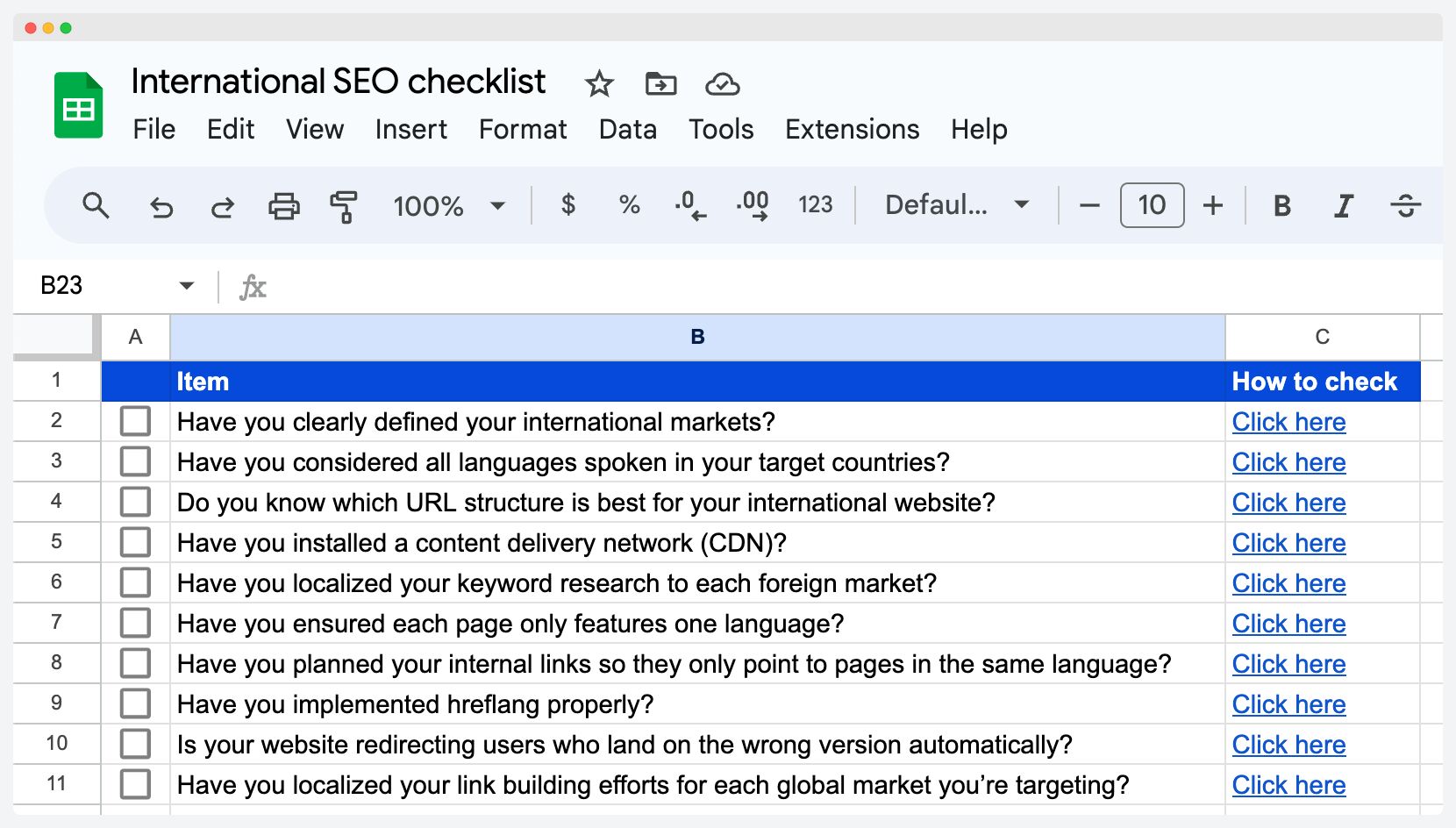Optimizing for the World: Mastering International SEO Techniques
Optimizing for the World: Mastering International SEO Techniques
Blog Article
Navigating the Digital Landscape: Leveraging International Search Engine Optimization for Cross-Border Success
In today's interconnected electronic globe, services are increasingly looking past borders to take advantage of worldwide markets. Leveraging search engine optimization (SEO) approaches tailored for global target markets is essential for accomplishing cross-border success. The intricacy of navigating the electronic landscape on an international scale requires a nuanced strategy, from understanding the basics of International search engine optimization to executing geotargeting and multilingual keyword phrase strategies. As business aim to broaden their reach and presence across various regions, enhancing website frameworks and keeping an eye on cross-border efficiency come to be important elements of a successful international SEO technique.
Recognizing International SEO Basics
Navigating the complexities of global SEO calls for a solid understanding of essential principles to effectively increase on the internet visibility throughout borders. One essential aspect of global SEO is recognizing the significance of localization.
Furthermore, having a clear understanding of geo-targeting is important. This entails indicating to browse engines the particular nations or regions an internet site is targeting. Executing hreflang tags is one method to communicate this info, guaranteeing that the right variation of a website appears in the search engine result for a user in a specific location.
Additionally, understanding the effect of local online search engine and social media platforms is vital for global search engine optimization success. While Google is dominant in many regions, countries like China have their own search engines like Baidu, requiring tailored techniques for each platform to make best use of on the internet exposure (International SEO).

Targeting Multilingual Keyword Approaches
Developing multilingual key words approaches is necessary for efficiently reaching varied worldwide target markets and taking full advantage of online presence across different etymological regions. When targeting multilingual key words approaches, it is essential to perform detailed research study to recognize the particular search terms and expressions made use of by the target audience in each etymological region. This involves not only converting key words however additionally thinking about social subtleties, regional dialects, and search trends distinct per target audience.
To produce an effective multilingual keyword technique, it is necessary to focus on significance and search intent. Keyword phrases need to align with the content on the internet site and resonate with the cultural context of the target market. Using devices such as Google Key Phrase Organizer, SEMrush, or Ahrefs can help recognize high-performing key words in different languages and evaluate their search volume and competition degree.
In addition, surveillance and analyzing the performance of multilingual keywords consistently is vital for enhancing and improving the approach over time. By continually adjusting to changes in search behavior and trends, businesses can boost their on the internet exposure and draw in more global web traffic to their websites.
Carrying Out Geotargeting and Hreflang Tags
When aiming to enhance global SEO techniques, incorporating geotargeting my website and hreflang tags is critical for optimizing site exposure throughout different regions. Geotargeting entails customizing look at more info material to details places, guaranteeing that users in various locations get relevant info. By executing geotargeting, services can improve their neighborhood search rankings and attract region-specific website traffic.

Optimizing Internet Site Framework for Global Visibility
To better improve international SEO methods past geotargeting and hreflang tags, enhancing the internet site framework is necessary for achieving worldwide presence and making the most of reach throughout different areas. A well-structured website not only enhances user experience yet additionally assists in search engine spiders in understanding the content and context of the website.
Moreover, producing language-specific subdirectories or subdomains can assist look engines deliver the appropriate variation of the web site to individuals based on their language choices, further enhancing the general individual experience. Furthermore, optimizing URL structures to include pertinent keywords and geotargeted terms can improve the site's visibility in various areas. By structuring the internet site effectively for global audiences, organizations can increase their opportunities of attracting international web traffic and broadening their reach throughout borders.

Surveillance and Analyzing Cross-Border Efficiency
Effective surveillance and analyzing of cross-border efficiency is essential for evaluating the success of global SEO methods and identifying opportunities for renovation in worldwide reach and presence. By carefully tracking vital efficiency indicators (KPIs) across different markets, services can get useful understandings right into the effectiveness of Go Here their cross-border search engine optimization initiatives. Monitoring metrics such as natural website traffic, keyword rankings, conversion prices, and bounce prices can give a detailed view of how well a web site is carrying out in numerous areas.
Evaluating cross-border performance information allows companies to determine fads, patterns, and locations for optimization. By comparing performance across different countries, regions, or languages, firms can pinpoint successful techniques and center material to better deal with particular target market. Additionally, keeping an eye on cross-border performance enables organizations to stay agile and responsive in the ever-evolving digital landscape. Routine analysis of SEO performance on a global scale ensures that business can adapt their techniques rapidly to profit from arising opportunities and maintain a competitive edge in international markets.
Verdict
In verdict, worldwide SEO plays an essential function in achieving cross-border success by maximizing internet sites for worldwide presence, targeting multilingual key words strategies, applying geotargeting and hreflang tags, and keeping an eye on cross-border performance. By recognizing the principles of international search engine optimization and enhancing site structures appropriately, companies can effectively reach and involve with their target market across various areas and languages. This strategic approach is crucial for broadening market reach and driving on-line development in today's digital landscape.
Report this page